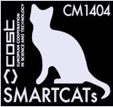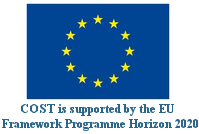



A simple and fast, weighted, linear least-squares refinement protocol and code is presented for inverting the information contained in a network of quantum chemically computed 0 K reaction enthalpies. This inversion yields internally consistent 0 K enthalpies of formation for the species of the network. The refinement takes advantage of the fact that the accuracy of computed enthalpies depends strongly on the quantum-chemical protocol employed for their determination.
This is an updated electronic copy of the Third Millennium Ideal Gas and Condensed Phase Thermochemical Database for Combustion with Updates from Active Thermochemical Tables (report TAE 960 Table 4). It includes ideal gas thermodynamic data in polynomial form, for species used in combustion and air pollution. The original data can be found on the Burcat's website. The ReSpecTh site also contains additional features, like plotting the thermodynamic functions and searching for species.
High-accurate temperature-dependent ideal-gas internal partition function and thermochemical functions were calculated based on the direct summation technique involving all accurate experimental, so-called MARVEL energy levels
A. G. Császár and T. Furtenbacher, From a Network of Computed Reaction Enthalpies to Atom-Based Thermochemistry (NEAT), Chem. Eur. J. 2010, 16(16), 4826-4835.
A. Burcat and B. Ruscic, Third Millennium Ideal Gas and Condensed Phase Thermochemical Database for Combustion with Updates from Active Thermochemical Tables
Tibor Furtenbacher; Tamás Szidarovszky; Jan Hrubý; Aleksandra A. Kyuberis; Nikolai F. Zobov; Oleg L. Polyansky; Jonathan Tennyson; Attila G. Császár, J. Phys. Chem. Ref. Data 45, 043104 (2016)